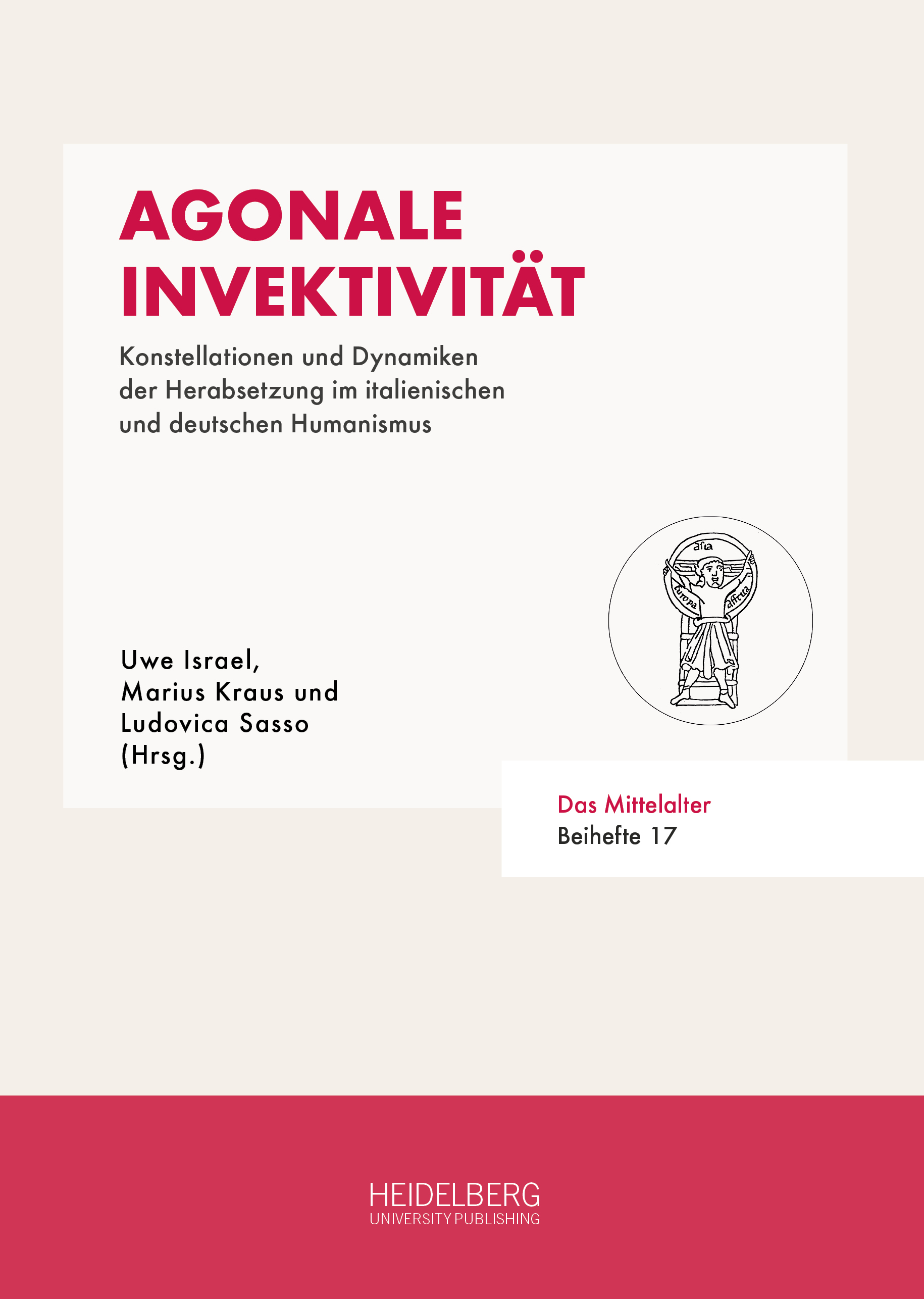
How to Cite
Israel, Uwe, Kraus, Marius and Sasso, Ludovica (Eds.): Agonale Invektivität: Konstellationen und Dynamiken der Herabsetzung im italienischen und deutschen Humanismus, Heidelberg: Heidelberg University Publishing, 2021 (Das Mittelalter. Perspektiven mediävistischer Forschung. Beihefte, Volume 17). https://doi.org/10.17885/heiup.862
License

This work is licensed under a Creative Commons Attribution-NonCommercial-ShareAlike 4.0 International License.
Identifiers
ISBN 978-3-96822-088-8 (PDF)
ISBN 978-3-96822-087-1 (Hardcover)
Published
09/16/2021
Agonale Invektivität
Konstellationen und Dynamiken der Herabsetzung im italienischen und deutschen Humanismus
What does humanism mean, who is a humanist? Contemporaries clarified this not least through diatribes. Intellectuals who, since the middle of the fourteenth century, have regarded rhetoric as the most noble method of promoting virtue, searching for truth and knowledge of God, saw mutual personal degradation as the means of asserting their positions.
Media coverage
Christoph Galle, in: Deutsches Archiv für Erforschung des Mittelalters, 79-1 (2023), 291–92.
Lorenz Böninger, in: Zeitschrift für Historische Forschung 50 (2023), 321–323.
Chapters
Table of Contents
Pages
PDF
HTML
Italienischer Humanismus
Eine wenig beachtete Sammlung von Fazetien und Invektiven Gian Mario Filelfos gegen Poggio Bracciolini
17-31
Die Invektiven von Bartolomeo Facio und Lorenzo Valla (Neapel, 1445–48)
33-47
Ein Beispiel für invektive Dynamiken in der Humanistengemeinschaft Italiens (1451–54)
49-79
81-94
Die Rezeption des ‚Antidotum in Pogium‘ im 16. Jahrhundert
95-106
Agostino Carraccis ‚Nymphe, kleiner Satyr und Kind‘ als invektive Bildparodie im künstlerischen Wettstreit mit den michelangiolisti
107-141
Eine neue Deutung von Caravaggios Amor vincitore
143-190
Deutscher Humanismus
Die scholastische Streitkultur der Universitäten und die Humanisten
193-208
im Kontext der publizistischen Fehde gegen Herzog Ulrich von Württemberg
243-280
Die Invektiven des Zisterzienserabtes Paul Bachmann in seinem Kampf für den ‚alten‘ Glauben
281-306
Georg Spalatins Invektive von 1541 gegen Herzog Heinrich den Jüngeren von Braunschweig
307-332





